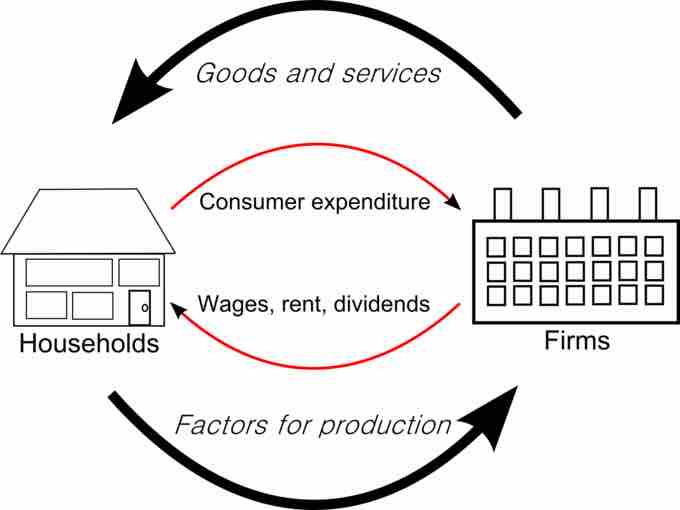Economics is a social science. This means that economics has two important attributes. Economics studies human activities and constructions in environments with scarce resources, and uses the scientific method and empirical evidence to build its base of knowledge.
The evaluation of human interactions as it relates to preferences, decision making, and constraints is a significant foundation of economic theory. The complexity of the dynamics of human motivation and systems has led to the establishment of assumptions that form the basis of the theory of consumer and firm behavior, both of which are used to model circular flow interactions within the economy .

Circular Flow of the Economy
Economics provides an accessible foundation for understanding the complexity of the interactions in the world. For example, the circular flow diagram displays the economic framework related to the dynamic interconnectedness of economic agents. In the graph above the display is limited to households and firms but other depictions of circular flow incorporate the government and international trading partners.
Economics provides distilled frameworks to analyze complex societal interactions, as in the case of consumer and firm behavior. An understanding of how wages and consumption flow between consumers and producers provides agents with an ability to understand the symbiosis of the relationship rather than fixating on the contentious components that surface from time to time.
Economics also allows individual agents to balance expectations. An understanding of the ebb and flow of the economy through the boom and bust of the business cycles, creates the potential for emotional balance by reminding agents to limit desperation in downturns and exuberance in expansions.
By developing an understanding of the foundations of economics, individuals can become better decision makers with respect to their own lives and maintain a balance with respect to an externality that has the potential to supplement or deter their plans. Since economic theories are a basis of decision making and regulatory policy, being knowledgable about economics foundations allows an individual to be an active and aware participant rather than a passive economic agent.